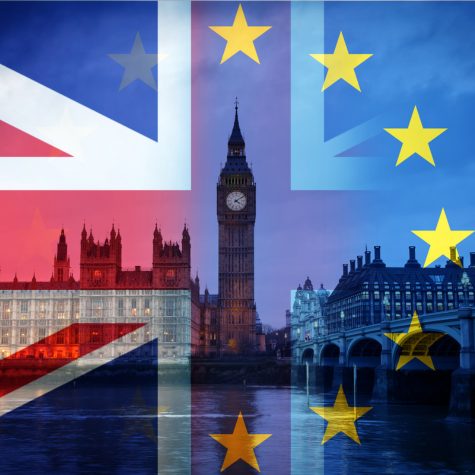
It’s been six years since the UK voted to leave the European Union – although given the amount of discussion in the news about the decision’s ongoing effects, it all seems much more recent. The property market has certainly not been immune to the changes brought about by that fateful vote, with property values, demand, and regulations all impacting buyers’ and sellers’ decisions.
As the UK’s hub for global business and finance, London has been particularly affected by the ups and downs of the transition period. According to a report by Knight Frank, London house prices stagnated in the aftermath of the Brexit vote in 2016, only to steadily increase to 21.5% higher than before the vote took place.
As the dust of Brexit clears, we are now able to look around at a new economic landscape, and make predictions for the future. In this context, understanding the implications of Brexit on London’s property market is crucial for investors, buyers, and sellers, allowing them to make more informed decisions and strategic investments.
Foreign Investment
The decision to leave the EU created significant global uncertainty surrounding the UK’s future economic prospects. The weakened pound, alongside confusion over free movement and commercial prospects, made London – which was previously considered a safe destination for long-term investment – suddenly less attractive for foreign investors.
On top of this, the much-publicised ins and outs of the Brexit negotiations resulted in a protracted period of uncertainty that led to a lack of confidence among investors, who were hesitant to make long-term commitments. In particular, the question of Britain’s borders and free movement of Europeans made it difficult to attract company HQs and bases for larger international companies to London.
These factors came together to create a reduced demand for commercial properties and a decrease in foreign investment into the property market. As such we have seen a period of slower growth in both commercial and residential properties in areas of London, though the latter have since recovered.
Decentralisation
The uncertainty around trade and investment made it difficult for UK businesses to plan for the future. This made it significantly less attractive for larger UK-based enterprises to set up their operations in London, with many opting instead for cheaper premises in other UK cities such as Manchester and Birmingham.
Brexit also led to increased bureaucracy for EU companies planning to set up headquarters in the UK, and increased complications when it came to tackling the borders. This made it more challenging for companies that relied on the import and export of goods to base their operations in London. The associated changes in immigration policies made it more difficult for EU workers to relocate to the UK, making it challenging for London-based companies to attract skilled workers from beyond the UK. As such, the usual influx of employees and job seekers relocating to London slowed down.
The resulting decentralisation led to decreased demand for both commercial and residential properties in London and increased demand in other UK cities, resulting in slower growth in property values and investment across London.
Concerns for Developers
The uncertainty around Brexit also has led to ongoing supply chain issues across all industries, and construction was no exception. Construction materials that were previously imported from the EU now face additional customs checks and duties, which can cause delays and increased costs for developers.
The subsequent Covid-19 pandemic and conflict in Ukraine both increased the effect of this uncertainty, disrupting global supply chains and leading to shortages and delays in the delivery of construction materials. The combined effect has increased the cost of construction to the point where many planned development projects have slowed to a standstill.
Further to this, the UK is no longer bound by EU building regulations after Brexit. The ensuing confusion over building regulations and planning permissions has added to the slowdown in the construction industry. Changes in immigration policies have also made it increasingly difficult for developers to recruit skilled workers from the EU, making it ever harder to get projects off the ground.
These issues have all contributed to a reduced supply of new properties in the market, as it becomes more difficult and costly to finance construction projects. The medium-term result is increased competition for existing properties, leading to higher property prices in certain areas of London.
Interest Rates
The weakening of the pound after the Brexit referendum made it more expensive for property developers to borrow money from overseas lenders, as overseas lenders require a higher return to compensate for the increased risk associated with lending in a weakened currency.
Likewise, the uncertainty surrounding Brexit has made it more difficult for lenders to assess the risk of lending to property developers in the UK. As a result, lenders require higher interest rates to compensate for the increased risk.
Following Brexit, the UK is no longer bound by EU regulations, which has led to changes in regulation for the financial sector. These changes may increase the cost of debt for property developers, as lenders adjust their business models to comply with the new regulations.
Brexit has also led to a reduction in the availability of funding for property developers, as some lenders have reduced their exposure to the UK market. This has resulted in increased competition for the remaining funding, which also leads to higher interest rates and fees.
These factors have made it increasingly difficult for London’s developers to finance their projects, ultimately leading to a reduced supply of new properties on the market.
Confounding Factors
In 2016, nobody could have anticipated the cataclysmic effect of COVID-19 on Britain’s economy. The panic and confusion around COVID-19 only added to the uncertainty around the housing market, while buying needs radically changed.
London saw a boost to the prices of certain types of property after the stagnation following the Brexit vote, as people affected by lockdown sought larger homes. With more people working from home, the demand for homes with dedicated workspaces increased. Likewise, the desire for private outdoor space skyrocketed after months of travel restrictions.
While the lockdown ended in 2021, the knock-on effect on the property market has continued. As a result, London properties with gardens, balconies, or terraces have become highly sought after, as well as properties located close to green spaces and parks.
The “race for space” has also led to a shift towards larger homes further away from city centres, rather than smaller flats in more central locations. This caused a significant shift in priorities for London’s property investors, who had previously benefited from letting small, central apartments.
The Mini-Budget
The Mini-Budget, also known as the Summer Economic Update, was delivered by the government in July 2020 in response to the economic impact of the Covid-19 pandemic. Amongst its policies were a temporary holiday on SDLT for properties priced up to £500,000. This predictably led to a surge in demand for properties in London, particularly in the mid to upper-end of the market.
The Mini-Budget also included a scheme to provide vouchers for homeowners to carry out energy-efficient upgrades to their properties. This led to an increase in demand for energy-efficient homes, particularly in areas of London where there is a shortage of such properties. As such, we may see an increase in development projects with a focus on energy efficiency and sustainability.
Additional funding was made available for affordable homes, which could have a long-term positive impact on the availability of affordable properties in London. However, despite these boosts, the impact of the Mini-Budget was overshadowed by the ongoing impact of Brexit and Covid-19 on the property market, and insolvencies continue to rise.
The Future of London’s Property Market
While Brexit and COVID-19 caused chaos for the housing market, we can now look forward to more stability. Brexit’s transition period, which ended on December 31, 2020, created significant uncertainty in London’s property market, leading to a reduction in demand for properties and a slowdown in the market. Now that the transition period is over, buyers, sellers and investors can make better-informed decisions.
The end of the transition period has also provided more clarity on the legal and regulatory landscape for the property market, and a new trading relationship with the UK. These factors make it easier for homebuyers and businesses to plan for the future, leading to increased demand for properties and a longer-term boost to the market.
The prevalence of working from home looks like it is here to stay, and with it an increased demand for properties that have spare rooms or dedicated home office spaces. This may lead to a shift in the types of properties that are sought after in London, with a greater focus on larger properties and a decrease in demand for studios and flats.
The increase in working from home may lead to a reduced demand for commercial properties in London, particularly in areas that were previously popular for office space. This may have implications for the availability of commercial properties in the market, as well as property values in certain areas.
With less need to commute to work, the demand for properties in certain areas of London may shift. Areas that are further away from the city centre, or that have more green space, may become more popular as Londoners seek a better work-life balance.
According to Investec, the Brexit deal is likely to have more significant implications in the long term, though this impact will depend on factors such as the success of the UK’s new trade deals, the strength of the UK economy, and how much new foreign investment flows into the country.
Propertymark suggests that Brexit may also lead to significant long-term changes in the rental market, such as a reduction in the number of EU nationals renting in the UK. This could be balanced by an increase in demand for rental properties from those who are not financially able to commit to buying a property during this period of rising prices.
Conclusion
The impact of Brexit on London’s property market has been unarguably significant, creating a period of uncertainty and reducing demand for properties. Taking into account the slowdown in foreign investment in London’s property market between 2016 and 2019, the decentralisation of UK companies, supply chain issues and regulatory uncertainty, it is small wonder that buyers, sellers and investors became hesitant.
While COVID-19 and the Mini-Budget led to a subsequent boost in certain London house prices due to the “race for space”, the pandemic added uncertainties of its own, leading to insolvencies and further issues for developers.
However, as we move beyond this period of confusion and reaction, we are starting to map out a more stable future. The increased clarity on the legal and regulatory landscape, along with a shift towards properties that have dedicated workspaces and outdoor space, have provided something of a game plan to buyers, sellers, and investors alike.
Looking to the future, it is likely that some changes in the property market will remain. For example, the increased demand for properties that have dedicated workspaces is likely to persist, as more people continue to work from home. Similarly, there may be a shift in demand for properties in certain areas of London, as people seek out a better work-life balance.
Overall, while the impact of Brexit on London’s property market has been significant, we are now moving into a period of longer-term stability. The challenges posed by Covid-19 and the Mini-Budget will continue to have an impact, but the market is likely to adapt and adjust to these changes over the coming years.

